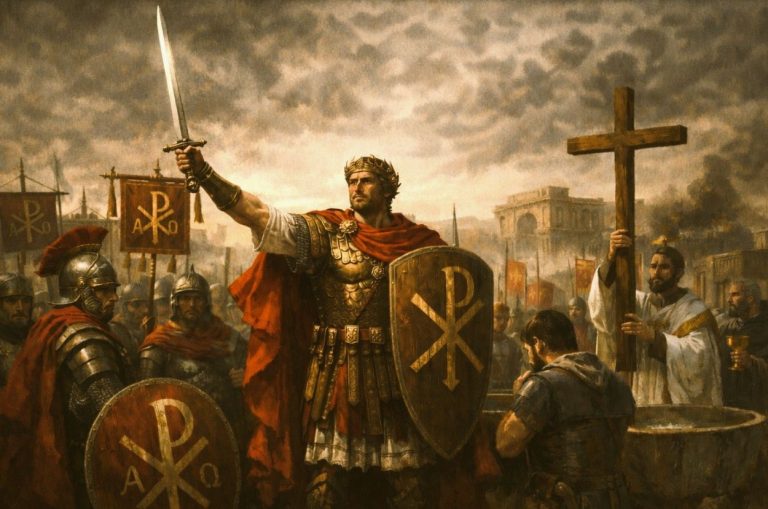
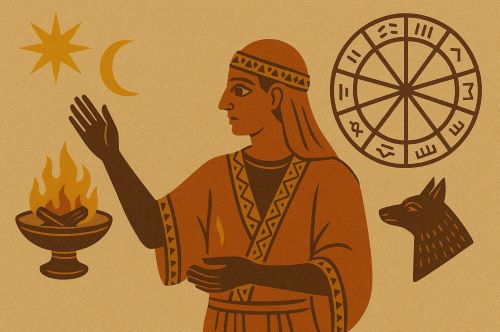
The more we historicize prediction, the more we see its role not only as a mirror of fear but as an instrument of design.

By Matthew A. McIntosh
Public Historian
Brewminate
Introduction: Seeing the Future, Shaping the Present
In the ancient world, prophecy was rarely a neutral act. Whether the stars were charted, entrails read, or dreams interpreted, the pursuit of foresight served more than spiritual curiosity. Across Mesopotamia, Egypt, Greece, and Rome, divinatory practices became enmeshed with state power, wielded not simply to predict events, but to prescribe responses, and, in doing so, to enforce existing social arrangements. What was seen in the sky was rarely just a message from the gods. It was also a mechanism for control.
This essay explores how ancient systems of divination were embedded in structures of authority and surveillance. Rather than spontaneous spiritual inquiries, these were often highly ritualized, state-sanctioned technologies of prediction, technologies that mirrored and reinforced political hierarchies. In a sense, ancient prophecy was less a window to the future than a mirror of the present. The powerful employed divination not only to interpret the will of the gods but to render their own decisions unassailable, framing political acts as divine mandates. And like today’s predictive algorithms, which claim statistical objectivity while disproportionately targeting the marginalized, ancient foresight often validated what power already sought to do.
Mesopotamia and the Codification of the Divine Will: The King’s Right to Read the Heavens
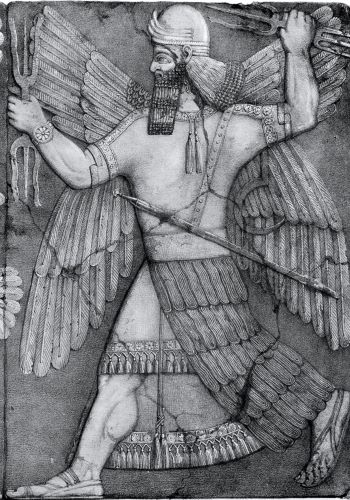
Nowhere was the bureaucratization of divination more pronounced than in ancient Mesopotamia. As early as the Old Babylonian period, temples were repositories of astronomical and astrological records. These archives, among the earliest scientific corpora in history, served more than intellectual ends. They were tools of statecraft. The famed Enūma Anu Enlil, a compendium of celestial omens compiled between 1595 and 1155 BCE, linked planetary movements with terrestrial events, embedding the heavens within a predictable, state-readable framework.1
The king did not consult the stars in private. Court-sponsored diviners (bārû) delivered oracular interpretations that would be archived, recorded, and sometimes kept secret. In times of crisis, rulers might send multiple diviners to separate temples, hedging the divine response through redundancy. What appeared to be deference to the gods was, in reality, a careful management of divine communication, a systematized flow of “data” curated by elites.2
This was not transparency. The gods did not speak to the people; they spoke to the scribes. In Mesopotamian political theology, the king’s legitimacy derived not from direct revelation but from exclusive access to divine interpretation. Prophecy, then, became a sanctioned monopoly.
Egypt and the Divine Machinery of the State: Oracles of Order
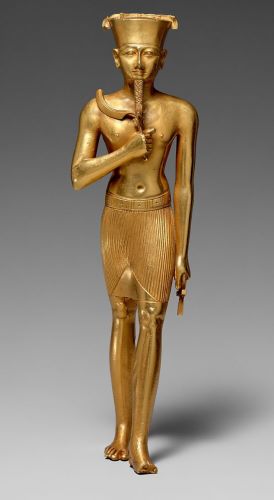
In pharaonic Egypt, prophecy was inseparable from ritual, and ritual was inseparable from hierarchy. The state did not merely allow religious divination; it choreographed it. Divine messages arrived during public ceremonies, often through processions or the movements of sacred statues, which were said to “choose” or “nod” toward preferred decisions.3
Yet such oracles functioned less as surprises than as affirmations. The king, considered semi-divine, stood both as subject and medium of divine will. Oracular consultation became a dramatic confirmation of royal policy. The moment of revelation had already been rehearsed.
When the divine statue of Amun was asked whether a particular official should be appointed, or whether a judgment should stand, the answer often followed known expectations. The ritual confirmed a selection already made by political elites.4 The oracle’s approval was not spontaneous but carefully managed within a liturgical theater of legitimacy.
The performative nature of such rituals reveals their disciplinary function. Ordinary Egyptians witnessed the “will” of the gods not in private visions but through spectacle. The king’s decisions, far from arbitrary, were rendered cosmically inevitable.
Greece and the Ambiguity of Prophetic Authority: Delphic Deference and Elite Interpretation
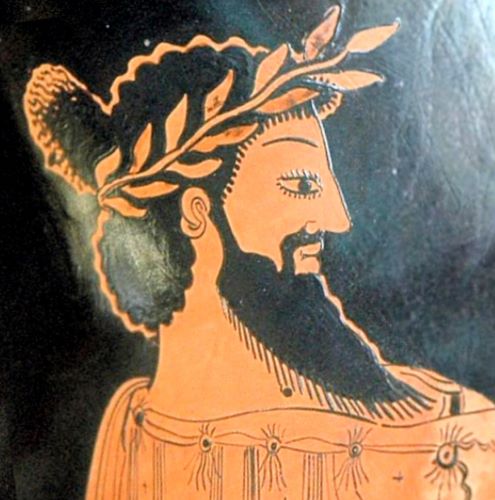
If Egypt gave divination structure and spectacle, Greece gave it ambiguity. Yet that ambiguity itself became a tool of control. The Delphic Oracle, for example, was famously cryptic, offering answers so elliptical they required elite interpretation. The Pythia, seated atop her tripod, did not dictate policy. Rather, her pronouncements were subject to translation, typically by male priests or civic leaders.5
This indeterminacy was not a flaw. It was a feature. Because her words were opaque, the interpretive class retained ultimate authority. The more unclear the god’s message, the more indispensable the political mediator. Prophecy thus remained hierarchically controlled even in its ambiguity.
Consider Croesus of Lydia, who was told that if he went to war, he would destroy a great empire. He interpreted the oracle as favorable. In truth, it was his own empire that fell. Such stories are moral lessons in hubris but also reflections of the ancient epistemology of foresight. Divination was not about certainty. It was about the management of uncertainty by those who held the language to decode it.6
Rome and the Bureaucracy of Auspices: Surveillance in the Republic and Empire
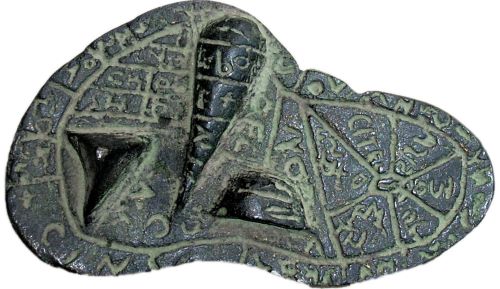
In the Roman world, augury evolved into a formal apparatus of surveillance. Unlike the ecstatic visions of other cultures, Roman divination, especially augury and haruspicy, was procedural. Augurs examined birds, entrails, and atmospheric signs, but only within prescribed ritual parameters. These were not random acts of observation. They were state rituals performed by state priests, regulated by law.
The auspicia could invalidate political actions. Magistrates consulted the gods before assemblies or military campaigns, and unfavorable omens could legally delay or reverse decisions.7 Yet these signs were not unmediated. The augur controlled the reading, and thus the meaning.
In practice, this power was wielded tactically. Cicero himself, an augur and a statesman, recognized that omens could be “seen” when politically convenient and ignored when not.8 The gods, it seemed, often aligned with the Senate’s agenda.
Under the Empire, this ritual control became centralized under the emperor. Augustus claimed the title pontifex maximus and aligned celestial signs with his reign, casting comets and eclipses as divine endorsements. What had once been public ritual became imperial branding.
Prediction and Inequality: Ancient and Modern Echoes
The logic of ancient divination bears unsettling resemblance to modern systems of predictive control. Today, algorithmic policing tools promise statistical neutrality, predicting “where crime will occur” or “who may reoffend.” Yet studies repeatedly show that these systems replicate existing inequalities, disproportionately targeting communities of color and lower-income neighborhoods.9
What is sold as neutral foresight is often retroactive justification. Like the Mesopotamian astrologers or the Roman augurs, modern predictive systems reflect prevailing structures rather than challenge them. They offer certainty where ambiguity might be politically inconvenient and package policy choices as objective inevitabilities.
The ancient use of prophecy and the modern use of data may seem dissimilar in form, but they are similar in function: both translate contingent choices into divine or algorithmic mandates. Both obscure power behind the veil of foresight.
Conclusion: Rituals of Certainty in a World of Risk
Divination in the ancient world was never simply about seeing the future. It was about authorizing the present. Across civilizations, the ritualization of foresight became a political act, a means of managing public perception, enforcing obedience, and validating hierarchical order. The gods, when consulted, rarely surprised the powerful. Instead, they endorsed what had already been decided.
What makes these systems historically significant is not their mysticism but their function. They were technologies (ritual, textual, astronomical) deployed to stabilize a world in flux. In a sense, ancient prophecy served the same psychological and political needs as today’s data analytics: to reduce uncertainty, legitimize control, and offer the illusion that outcomes are foretold rather than enforced.
The more we historicize prediction, the more we see its role not only as a mirror of fear but as an instrument of design. Whether shaped by omens or by code, foresight, once institutionalized, rarely speaks truth to power. More often, it speaks power’s truth.
Appendix
Footnotes
- Francesca Rochberg, The Heavenly Writing: Divination, Horoscopy, and Astronomy in Mesopotamian Culture (Cambridge: Cambridge University Press, 2004), 56.
- Eleanor Robson, Mesopotamian Mathematics, 2100–1600 BC: Technical Constants in Bureaucracy and Education (Oxford: Oxford University Press, 1999), 135–136.
- Alexandra von Lieven, “Oracles in Ancient Egypt,” in Divination and Interpretation of Signs in the Ancient World, ed. Amar Annus (Chicago: University of Chicago Oriental Institute, 2010), 153.
- Geraldine Pinch, Magic in Ancient Egypt (London: British Museum Press, 1994), 83.
- Joseph Fontenrose, The Delphic Oracle: Its Responses and Operations (Berkeley: University of California Press, 1978), 221–222.
- Herodotus, Histories, 1.53–1.91.
- Mary Beard, SPQR: A History of Ancient Rome (New York: Liveright, 2015), 183.
- Cicero, De Divinatione, 2.77–2.78.
- Rashida Richardson, Jason M. Schultz, and Kate Crawford, “Dirty Data, Bad Predictions: How Civil Rights Violations Impact Police Data, Predictive Policing Systems, and Justice,” NYU Law Review Online 94 (2019): 15–55.
Bibliography
- Beard, Mary. SPQR: A History of Ancient Rome. New York: Liveright, 2015.
- Cicero. De Divinatione. Translated by W. A. Falconer. Cambridge: Harvard University Press, 1923.
- Fontenrose, Joseph. The Delphic Oracle: Its Responses and Operations. Berkeley: University of California Press, 1978.
- Herodotus. Histories. Translated by Robin Waterfield. Oxford: Oxford University Press, 1998.
- Pinch, Geraldine. Magic in Ancient Egypt. London: British Museum Press, 1994.
- Richardson, Rashida, Jason M. Schultz, and Kate Crawford. “Dirty Data, Bad Predictions: How Civil Rights Violations Impact Police Data, Predictive Policing Systems, and Justice.” NYU Law Review Online 94 (2019): 15–55.
- Robson, Eleanor. Mesopotamian Mathematics, 2100–1600 BC: Technical Constants in Bureaucracy and Education. Oxford: Oxford University Press, 1999.
- Rochberg, Francesca. The Heavenly Writing: Divination, Horoscopy, and Astronomy in Mesopotamian Culture. Cambridge: Cambridge University Press, 2004.
- von Lieven, Alexandra. “Oracles in Ancient Egypt.” In Divination and Interpretation of Signs in the Ancient World, edited by Amar Annus, 153–166. Chicago: University of Chicago Oriental Institute, 2010.
Originally published by Brewminate, 07.16.2025, under the terms of a Creative Commons Attribution-NonCommercial-NoDerivatives 4.0 International license.
